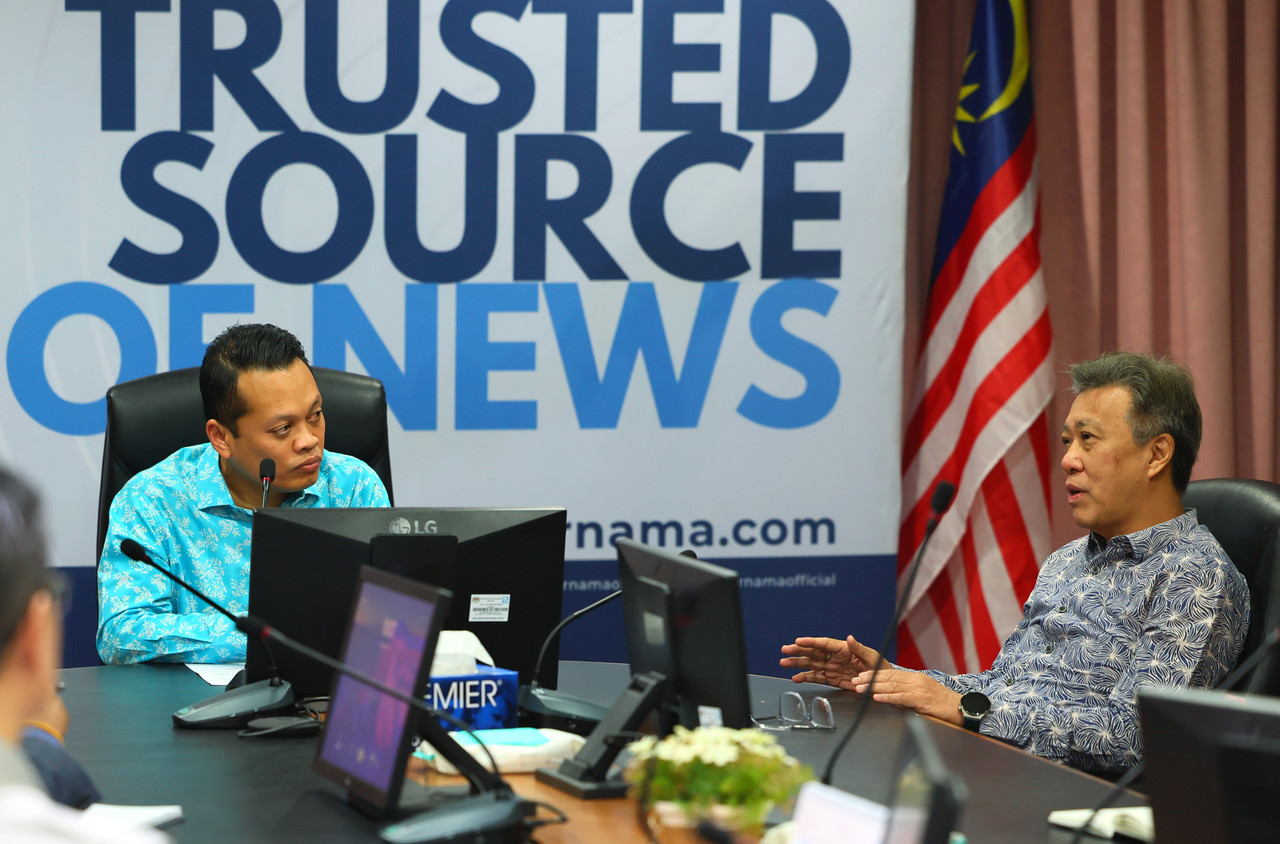KUALA LUMPUR — Malaysia is facing ongoing challenges in regulating illegal recycling plants, with Natural Resources and Environmental Sustainability Minister Nik Nazmi Nik Ahmad acknowledging the need for improved enforcement and coordination.
Speaking at the Concorde Club, an exclusive gathering of journalists and policymakers, Nik Nazmi also highlighted that Malaysia’s waste recycling rate remains below expectations, citing enforcement gaps and a need to boost coordination among agencies.
“We need better coordination to strengthen waste recycling efforts. This year, Malaysia’s waste recycling rate was projected to reach 40% by year-end, but we have only achieved 35%, so we are still falling short,” he said.
Addressing illegal and unregulated recycling operations
The recycling sector, particularly plastic and e-waste, remains complex, with both legal and illegal operations coexisting. Some factories operate within regulations, but concerns persist over the handling of improperly imported waste.
“There are both legitimate and illegal recycling operations in Malaysia. While some factories operate legally, they may still handle illegally imported waste,” Nik Nazmi said.
“We need a broader perspective on this issue to boost recycling rates, especially for plastics, which remain difficult to recycle depending on type and quality.”

While Malaysia has taken steps to regulate the industry, further measures are needed to ensure the country does not become a dumping ground for low-quality and hazardous waste.
Nik Nazmi stressed the importance of stricter enforcement but acknowledged the challenges in fully addressing the issue.
“Many countries have imposed stricter controls on plastic waste imports, and we should do the same. The challenge lies in regulating the industry effectively,” he said.
Authorities have intensified efforts against illegal e-waste processing, uncovering a major syndicate in Pahang on February 17, with operations worth RM410 million. Raids in Pekan and Gebeng exposed hazardous waste smuggled from China. This follows recent crackdowns in Perak and Johor, where authorities seized over RM1.3 billion in illicit e-waste.
In response, Malaysia is tightening regulations. The Natural Resources Ministry pledged stricter enforcement, with harsher penalties under the Environmental Quality Act. Recent MACC-led raids on 12 factories led to 16 arrests and RM3.8 billion in seizures, highlighting the scale of Malaysia’s illegal e-waste trade.
Strengthening compliance with the Basel Convention
On e-waste and plastic processing, Nik Nazmi pointed to the Basel Convention, an international treaty designed to prevent hazardous waste dumping. He noted that while Malaysia has regulations in place, enforcement must be strengthened to prevent illegal imports.
“For plastics, we allow legal imports to a certain extent, but not for e-waste, although it is still coming in anyway. That is a major problem,” he said.
He noted that the issue is not merely about economic gains but also environmental and worker safety. Improper recycling of e-waste can expose workers to hazardous materials and lead to environmental pollution if not handled responsibly.
“It’s bad for the workers, it’s bad for the environment. The challenge is to ensure the process is done properly to protect health, safety, and the environment,” Nik Nazmi said.
Calls for stronger enforcement and industry responsibility
Nik Nazmi’s remarks come as environmental groups urge the government to step up enforcement efforts. Non-governmental organisations (NGOs), including the Basel Action Network (BAN) and Sahabat Alam Malaysia (SAM), have called for stricter measures to tackle illegal recycling operations.
“These illegal operations are run by syndicates looking to extract valuable materials while avoiding pollution control costs,” the NGOs said in a joint statement recently.
“They then illegally dump the toxic residual material at the lowest cost.”
The NGOs acknowledged the efforts of enforcement agencies, including the Department of Environment, Royal Malaysian Customs Department, Royal Malaysia Police, Immigration Department, and the Malaysian Anti-Corruption Commission (MACC), in combating illegal waste activities. However, they warned that more must be done to ensure long-term environmental sustainability.
Some industry players have argued for a relaxation of Malaysia’s e-waste import restrictions, but environmental groups warn that doing so could undermine the country’s commitment to the Basel Convention and lead to increased pollution.
“The consequences are serious. Pollution from mismanaged e-waste can cause cancer, affect brain development, disturb endocrine systems, and cause birth defects. These effects are irreversible and will affect future generations,” the NGOs warned. – March 24, 2025


